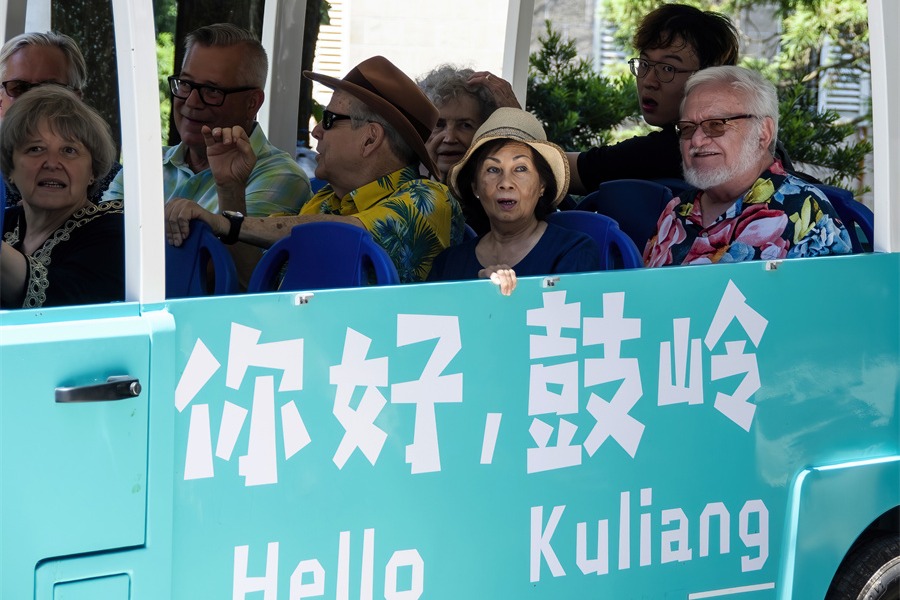Construction of Thailand-China railway project to start in 2017: official
Xinhua | Updated: 2017-05-17 10:53
BANGKOK - The construction of Thailand-China railway project from Bangkok to Nakhon Ratchasima, which will be further extended to Nong Khai on the Thai-Lao border in the future, will start in 2017 for sure, Chatchai Thipsunaree, Permanent Secretary of Thailand's Ministry of Transport, said on Tuesday.
"We (Thailand and China) are almost done with the contract, 90 percent I will say, the construction will start in this year for sure," Chatchai told Xinhua after a press conference of the Transport Ministry.
Thai Transport Minister Arkhom Termpittayapaisith also mentioned the railway project at the press conference, saying it is a project of great importance to the kingdom, as it will connect Thailand with neighboring countries.
The current project, 252 km high speed railway from Bangkok to Nakhon Ratchasima, will be extended another 355 km to Nong Khai on the Thai-Lao border, connecting with China-Lao railway from Vientiane to Kunming in China's southern Yunnan Province, according to Arkhom.
The railway is also to be extended to the south, to Kuala Lumpur and finally Singapore, Arkhom said.
The Thai government also plans to build a public-private partnership high-speed rail from Bangkok to Rayong to connect with the Thailand-China railway project.
Several Thai experts told Xinhua earlier that they want the railway plan to be implemented in a faster way.
Aksornsri Phanishsarn, director of Thai-Chinese Strategic Research Centre, National Research Council, told Xinhua that she hopes that China can help to push the Thailand-China railway project for it to become a "successful case" of cooperation between countries.
Swai Visavanant, senior researcher at Chulalongkorn University's China Study Center, urged the Thai government to quickly move toward the implementation of the railway project, otherwise, Thailand may lose a good chance in its development.
According to Arkhom, China and Thailand still need to agree on three things, such as materials for the construction, consulting fee and whether it is necessary for Chinese engineers to get Thai engineering certifications before they come to work in the kingdom.
























